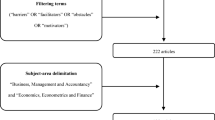Abstract
The reseach, technology and development (RTD) evaluation in terms of science and technology policy has come to be important in stimulating research activities and in continuously keeping the vitality and the higher quality of research in RTD institutions. There are two criteria on the RTD evaluation, i.e, in-house evaluation from the stand point of RTD management and independent macroscopic evaluation for the decision making of companies and/or policy making for science and technology policy.
The most important point for RTD evaluation in the former criteria is in the mission itself. RTD in universities, public research institutes, and enterprises have different objectives and characteristics. Therefore, the mission and methodology of RTD evaluations should be different, by categorized type and objectives of research institutions, and be developed inhouse. Results of RTD evaluations should be fed back to researchers or engineers and disclosed principally if the mission was to stimulate knowledge creation through RTD activities.
The in-house RTD evaluation can be classified in general into three categories: prior evaluation, mid-term review, and ex-post facto review. The methodologies to evaluate RTD in each phase of the RTD process are different, even among those institutes categorized into the same type such as national and regional research institutes. In this paper, two cases of RTD evaluation a) in Riken, which was founded in 1917 as a private research foundation and later reorganized as a semi-public research corporation of the Science and Technology-Agency, b) in regional public research institutes.
RTD evaluation from the view point of policy assessment of governmental science and technology policy is discussed through analysis of data obtained by the survey of research activities in regional public research institutes. It can be concluded that developments and introduction of RTD evaluation as a new management system in these institutes is improving the research environment and advancing the quality of research. The differences of RTD evaluation between a Center of Excellence (COE) such as Riken and local technology centers, will be compared and the policy implication of RTD evaluation will also be discussed in terms of promotion of science and technology.
Similar content being viewed by others
References
“White Paper on RIKEN. Vol. I, General Introduction”, Executive Committee for the RIKEN Advisory Council (RAC), Saitama, Japan, 1993.
H. Watatani, T. Yamamoto, K. Gonda, T. Sakamoto, “Survey Research on Promotion Policy for Science and Technology in Regions”, NISTEP REPORT No. 23 (1992).
K. Gonda (Ed.),Technology Management Encyclopedia, Sun Chou Press, Tokyo, Japan, 1994.
Per O Seglen, How representative is the journal impact factor?,Research Evaluation, 2(3) (1992) 143;W. Glänzel, H-J Czerwon, What are highly cited publications? A method applied to German scientific papers, 1980–1989.ibid. Research Evaluation, 2(3) (1992) 135.
C. Vilandiu, L. Escribano, J. Bellavista, M. Grabulos, E. Guardiola, C. Iglesias, D. Serrat, A research evaluation model of a large, ancient university,Research Evaluation, 2(3) (1992) 124.
K. Gonda, External economies for research and technology development in terms of regional innovation. In:Regionalization of Science and Technology Resources in the Context of Globalization,K. Gonda,F. Sakauchi,T. Higgins (Eds), Sun Cho Press, Tokyo, 1994, pp. 19–48.
Liwen Qui, A study of interdisciplinary research collaboration.Research Evaluation, 2(3) (1992) 169.
K. Gonda, Y. Oyama, T. Yamamoto, A Theoretical Framework of Regional Innovation and Development from View Point of Regional S&T Policy. International Workshop on Regional Science and Technology Policy Research, RESTPOR'95. “Regional Management of Science and Technology”, Kanagawa, Japan, Proceedings, (1995) pp 1–35.
Author information
Authors and Affiliations
Rights and permissions
About this article
Cite this article
Gonda, K., Kakizaki, F. Research, technology and development evaluation; developments in Japan. Scientometrics 34, 375–389 (1995). https://doi.org/10.1007/BF02018006
Received:
Issue Date:
DOI: https://doi.org/10.1007/BF02018006




